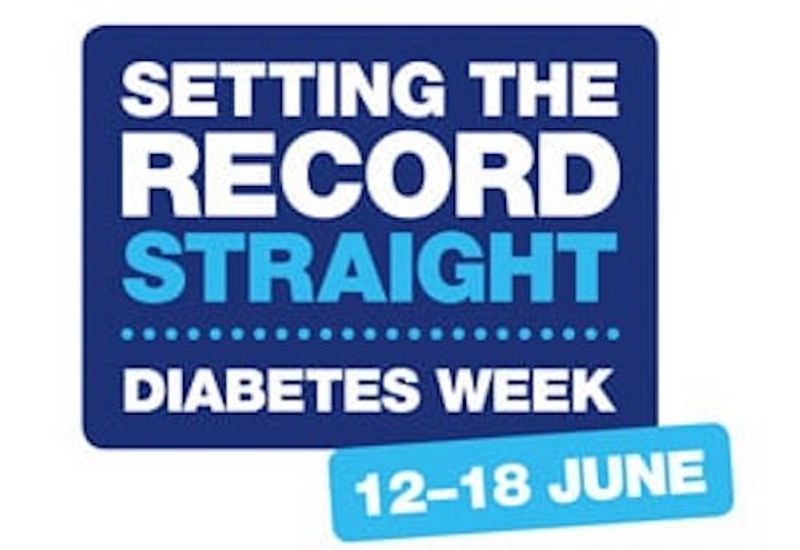This week marks the annual diabetes awareness week. While most people have heard of diabetes, many don’t fully understand it, or how it affects those who have it.
These are some of our favourite hints, tips and resources regarding going to university with diabetes. We’re going to start by laying out some advice for those going to uni with diabetes, but scroll on down for advice on supporting/ living with friends who have diabetes.
What is diabetes?
Diabetes is a lifelong condition, which affects your body’s ability to produce a hormone called insulin. Insulin essentially allows the glucose in our blood (which we get from eating food), to fuel our bodies, but for people with diabetes, this system doesn’t work, and therefore the levels of glucose in their blood are too high.
It’s important to know that there are different types of diabetes, the most common being Type 1, Type 2, and gestational diabetes (diabetes in pregnant women). While university students could easily suffer from any of these types, it is most likely that they would have Type 1 diabetes. Those with Type 1 diabetes cannot make any insulin at all within their own bodies. Those with Type 2 either can’t produce enough insulin, or the insulin they produce doesn’t work effectively.
What to do as a diabetic student
There’s a lot of information out there for those starting university with diabetes (particularly those with Type 1). There are also lots of first-hand accounts from people who were diagnosed shortly before going to uni, or while at uni, so don’t panic if you’ve been newly diagnosed and are already at university, or about to go.
Some of the main suggestions include:
Tell your university beforehand. Universities have people whose dedicated job is to assist students with any kind of condition or disability. The chances are, they’ve helped plenty of students with diabetes before, and might even be able to suggest helpful advice and provisions you hadn’t thought of.
Feel free to mention diabetes in your application if applying for halls of residence. While every university, and the provisions they offer, differ - it’s definitely worth mentioning. Whether it’s a mini-fridge in your room to keep insulin, or being given first choice of if you’d like an ensuite, your uni will most likely want to do all that they can to ensure you’re as happy and comfortable as possible.
Diabetes can affect your energy levels, and in many cases lead to needing time off from university. While you are able to apply for extenuating circumstances (and hopefully have already made the university aware of your condition), it doesn’t hurt to let individual lecturers/ seminar leaders know - if you feel confident enough to. Especially if you do a course where you’re in small seminar groups and your absence will be noticed. It just helps keep you in the staff's good books if you keep them in the loop about absences.
They also might be able to offer extra reading and help to get you caught up when they realise you were off for a legitimate reason, rather than from one too many shots of tequila.

Be sure to let the people you are living with know ASAP. If you fancy standing on the table your first night in halls, gathering everyone around and making an announcement- go for it. If that feels a bit much, just quietly letting people know will suffice. It’s always a bit awkward when you first move and bringing up diabetes might not be the first thing you want to do, but it’s important that those you live with know what to do in an emergency.

Make sure you know where you’re at with alcohol. For a lot of people, university means lots of drinking. While those with diabetes can happily indulge (and occasionally over-indulge) just like anyone else, it’s extra important to know your limits, and how you react to alcohol. Especially if you were only diagnosed shortly before uni, or did not drink much while living at home, be careful not to go on a crazy binge. Make sure those going out with you know that you’re diabetic, and be sure to eat something before you go out, and when you get home (your pals won’t be reluctant to grab cheesy chips en route, I’m sure of it).

If you’re living with, in classes with, or pals with, someone with diabetes, it’s worth doing a little bit of research to make their lives easier.
- First up, if someone has told you they have diabetes (don’t ask someone if you suspect it, wait for them to tell you), ask what you should do in an emergency. Everyone is different, and they’ll be able to tell you what signs to look out for, where they keep their medication and the likelihood of their needing help.
- Try and avoid annoying questions based on myths. Obviously, you wouldn’t necessarily know they were myths until you asked, but just know that Type 1 Diabetes is in no way related to lifestyle, and no one really knows what causes it - so it wasn’t that they ate too many sweets as a child!
- Take their snacks seriously. University is often the home of passive-aggressive notes in the fridge and heavily labelled food, but that doesn’t mean you won’t occasionally be guilty of nabbing a couple of your housemates digestives when you’re starving. This usually isn’t the end of the world, but diabetics need to have sugary snacks on hand to raise their blood sugar, so don’t steal their kitkats! Also, don’t get angry if they’ve pinched one of yours when their blood sugar was low - their need was greater than yours.
Side note: give them a little extra space in the fridge to store insulin. It needs to be kept refrigerated, and uni fridges are often lacking in the space department, so make sure your diabetic housemate hasn’t been left with no space for their milk and cheese.

If you move in with someone with diabetes, read a few stories like these. It’s always good to make an effort to be understanding but can also prevent you from making mistakes. There is a story of one girl who unplugged her housemate's mini fridge while she was away, to save electricity, not realising that insulin needs to be kept cold.
Plenty of info and advice can be found all over the internet, among medical professionals, and through your university, but we recommend these sites as a good place to start:
Most of all, remember that although diabetes needs to be taken seriously, it won’t stop you from having a wonderful university experience!













